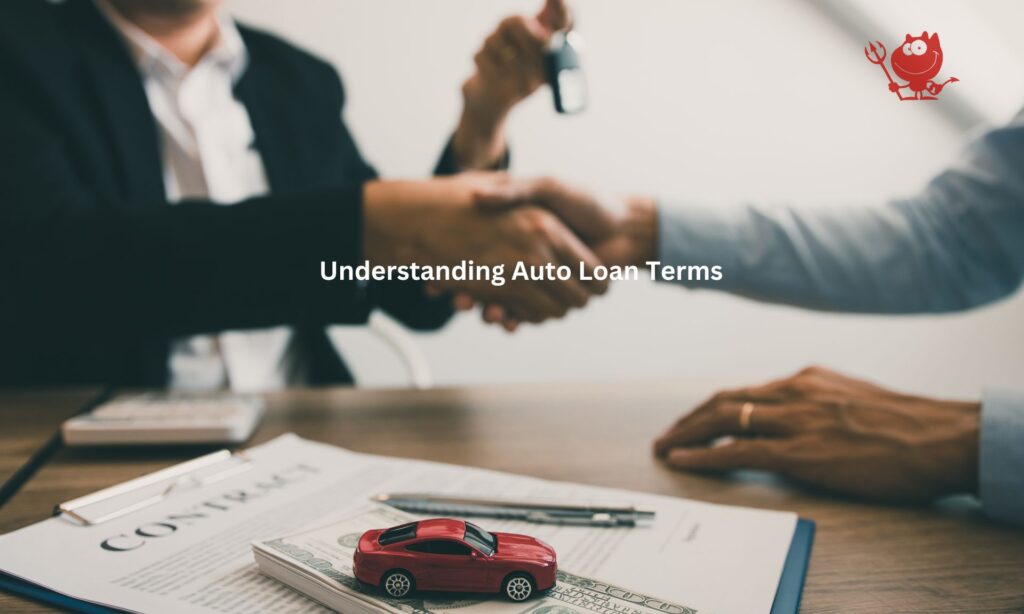Navigating the world of auto financing can feel like learning a new language. With the average auto loan in the United States reaching $39,721 in 2021, understanding auto loan terms has never been more crucial for American car buyers. Whether you’re a first-time buyer or looking to refinance, mastering these terms can help you secure better financing and potentially save thousands of dollars over the life of your loan.
Essential Auto Loan Terms Every Buyer Should Know

Annual Percentage Rate (APR)
The Annual Percentage Rate (APR) is perhaps the most critical term to understand when comparing auto loans. Unlike the simple interest rate, APR represents the total cost of borrowing, including both interest and fees, expressed as a yearly percentage. According to recent data from Experian’s Q1 2024 State of the Automotive Finance Market report, average new car loan rates varied significantly based on credit scores:
- Excellent credit (800+): 5.38%
- Poor credit (below 580): 15.62%
Understanding APR helps you make accurate loan comparisons and potentially save thousands over the life of your loan.
Principal and Down Payment
The principal is the initial amount borrowed, while the down payment is the upfront payment you make toward the vehicle’s purchase price. Financial experts typically recommend:
- New cars: 20% down payment
- Used cars: 10% down payment
A larger down payment reduces your loan amount, potentially leading to better interest rates and lower monthly payments.
Loan Term or Duration
The loan term is the period over which you’ll repay your auto loan, typically ranging from 24 to 84 months. While longer terms mean lower monthly payments, they often result in higher total costs. Consider this example for a $36,000 loan at 6% interest:
36-month term:
- Monthly payment: $1,095
- Total interest: $3,427
60-month term:
- Monthly payment: $696
- Total interest: $5,759
Interest Rate vs. APR
While often confused, these terms represent different costs:
- Interest rate: The basic cost of borrowing money
- APR: Total cost including interest and fees
Understanding this distinction helps you make more informed comparisons between loan offers.
Types of Auto Loans and Financing Options
Dealer Financing
Dealer financing offers convenience but often comes with higher rates due to dealer markups. However, manufacturers occasionally offer special promotional rates through certified dealerships.
Bank and Credit Union Loans
Traditional financial institutions typically offer:
- Competitive rates
- Established relationships
- More structured approval processes
- Processing time: 1-7 business days
Online Lenders
Modern online lenders provide:
- Quick approval processes
- Competitive rates for various credit scores
- Digital-first experience
- Often more flexible credit requirements
Important Terms Related to Loan Security
Collateral and Liens
Your vehicle serves as collateral for the loan, meaning:
- The lender holds a lien on the vehicle
- The car can be repossessed if payments are missed
- You receive the title after paying off the loan
Insurance Requirements
Lenders require specific insurance coverage:
- Comprehensive coverage
- Collision coverage
- GAP insurance (optional but recommended)
Force-Placed Insurance
If you let your insurance lapse, lenders may purchase insurance on your behalf at a premium cost.
Understanding Loan Costs and Payments
Amortization
Auto loans use amortization schedules where:
- Early payments go primarily toward interest
- Later payments apply more to principal
- The loan balance gradually decreases over time
Total Cost of Ownership
Consider all costs when evaluating a loan:
- Principal amount
- Total interest paid
- Insurance costs
- Maintenance expenses
- Depreciation
Credit Considerations and Qualification Factors
Credit Score Impact
Your credit score significantly influences loan terms:
- Higher scores: Better rates and more options
- Lower scores: Higher rates and limited choices
- Minimum score requirements vary by lender
Co-Signers and Joint Applications
Adding a co-signer can:
- Improve approval odds
- Lower interest rates
- Increase borrowing capacity
- Share responsibility for payments
Special Considerations and Protection
GAP Insurance
Guaranteed Asset Protection (GAP) insurance covers:
- The difference between loan balance and car value
- Protection in case of total loss
- Typical cost: $400-700 upfront
Extended Warranties
Consider factors like:
- Coverage length
- Covered components
- Cost vs. potential repairs
- Manufacturer reputation
Legal Protections and Requirements
Truth in Lending Act
This federal law requires lenders to disclose:
- APR
- Finance charges
- Payment schedule
- Total payments
- Late payment policies
State-Specific Regulations
Different states have varying:
- Interest rate caps
- Repossession laws
- Consumer protection measures
- Documentation requirements
Conclusion
Understanding auto loan terms is crucial for making informed financing decisions. By mastering these concepts, you can:
- Negotiate better loan terms
- Save money over the life of the loan
- Avoid common financing pitfalls
- Make confident vehicle purchasing decisions
Take time to research and compare multiple loan offers before making a decision. Consider consulting with a financial advisor for personalized guidance based on your specific situation.
Ready to start your car buying journey? Get pre-approved for an auto loan today and know exactly what you can afford before visiting the dealership.
FAQ Section
Q: What’s the ideal credit score for the best auto loan rates?
Generally, scores above 720 qualify for the best rates, though excellent rates are possible with scores above 680.
Q: How much should I put down on a car?
Aim for 20% on new cars and 10% on used cars to avoid negative equity and secure better rates.
Q: Should I choose a longer loan term to get lower monthly payments?
While longer terms reduce monthly payments, they increase total interest paid. Choose the shortest term you can comfortably afford.
Q: What happens if I miss a car payment?
Late fees apply immediately, credit scores may be impacted after 30 days, and repossession is possible after 90+ days of non-payment.
Q: Can I refinance my auto loan?
Yes, refinancing is possible if your credit improves or market rates decrease significantly.
In another related article, Shift Auto Loan Alternatives: Top Online Car Shopping Platforms




